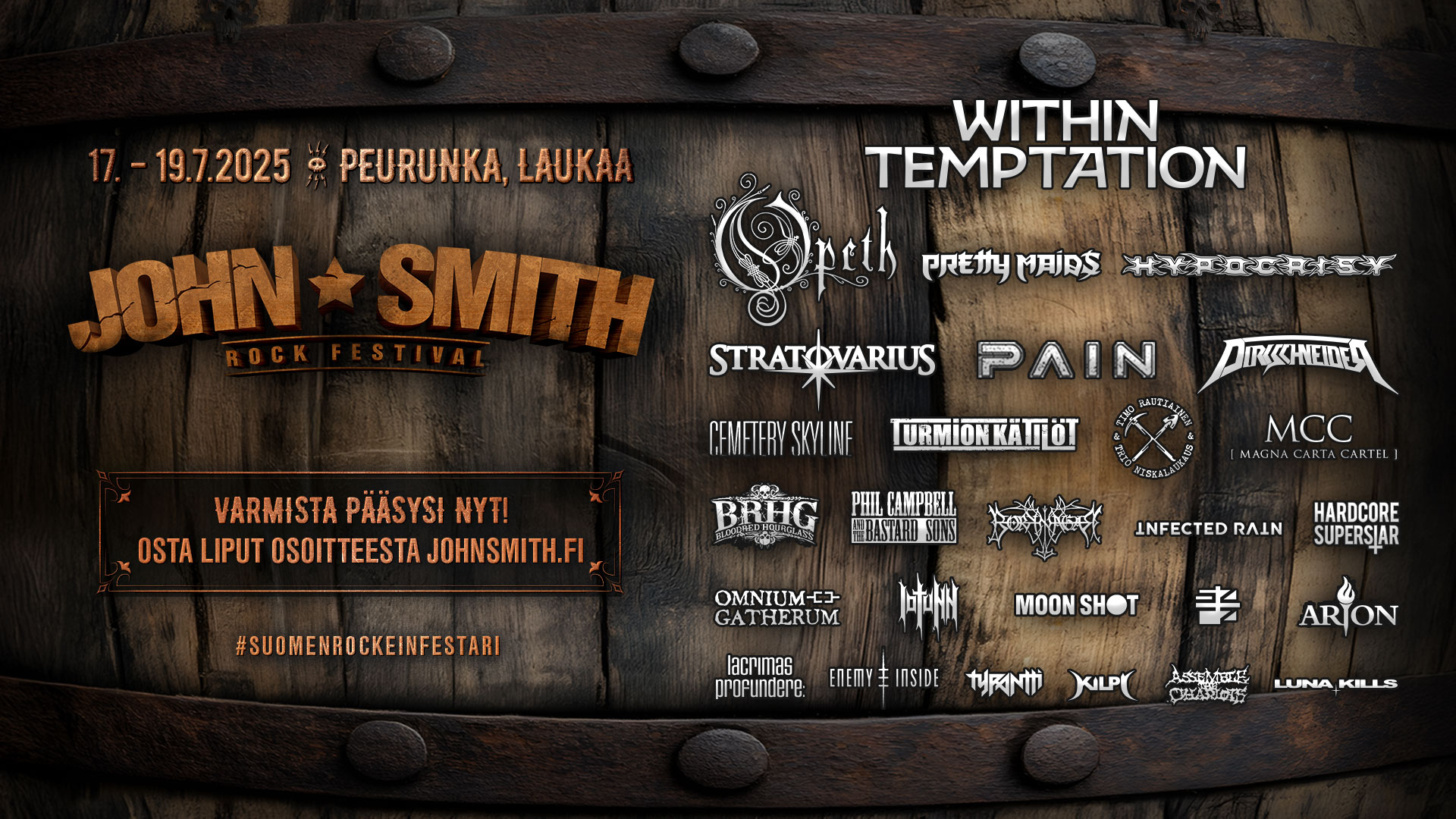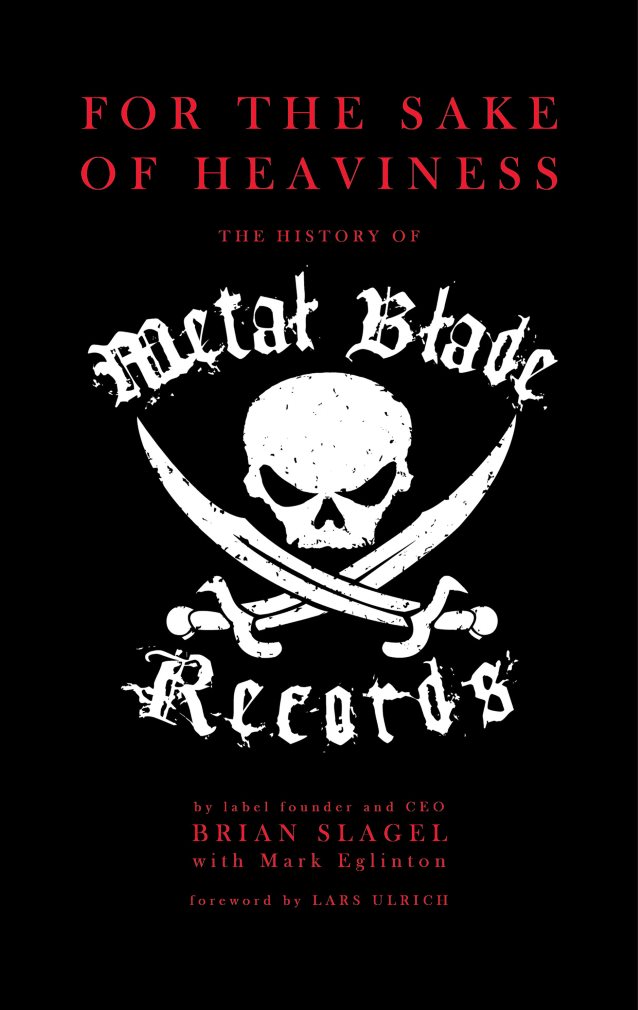Metal Blade Recordsin toimitusjohtaja uskoo metalcoren nostaneen metallin takaisin jaloilleen 2000-luvun alussa

Metal Blade Recordsin perustaja ja toimitusjohtaja Brian Slagel on antanut That Drummer Guy -sivulle haastattelun, jossa hän kertoo mm. levy-yhtiön historiasta, sekä näkemyksistään raskaan musiikin nykytilaan liittyen. Voit lukea alta hänen kommenttejaan Blabbermouthin litteroimana.
Slagel kertoi haastattelussa tulevan ”For The Sake Of Heaviness: The History Of Metal Blade Records” -kirjansa synnystä:
”We were figuring out what to do for our 35th anniversary and people have been bugging me over the years to do a book. It felt like ’Well, this might be a fun thing to do for our 35th anniversary,’ so I might as well start telling some of these stories before I start forgetting it, then we moved up with BMG, who is an amazing partner and it all worked out. We tried to get as much as we could in there and not make it too boring, hopefully.” [Laughs]
Artikkeli jatkuu mainoksen jälkeen Mainos päättyy
Slagel kommentoi myös sitä, että hän on kyennyt musiikki-intoilijana työllistämään itsensä Metal Blade Recordsin omistajana:
”I am just extremely lucky and honored to be able to work with so many great bands all over the years. I’m just a big fan and just being involved and whatever little help I could do to help out all of these bands is awesome.”
Kysyttäessä uskoiko hän tekevänsä näinkin pitkää työuraa levy-yhtiön omistajana, Slagel vastasi:
”There was zero thought to anything back then. I wasn’t thinking anything was going to happen. When I did the first record, I wasn’t even intending on having a record label, I was just putting out a record to help the local metal scene. Then, once I got distribution deals to bring more stock, I thought ’This will be fun to do for a while.’ But there were no grand plans to become a big label or a real label or really anything. I was doing it all by the seat of my pants, really just to help the scene. I was just trying to help the scene, help the metal scene get bigger. That was all what my intentions were. As time went on, the label grew and grew. Then, it became something a little bit different than what I thought it would end up being.”
Kysymykseen siitä, milloin hän huomasi Metal Bladen vaikutuksen metalliskeneen, mies vastasi:
”It was kinda tough. Back then, you didn’t have the Internet and all of these sort of things way back then, so it was hard to judge what’s going on. You’re so focused on what I was doing. The first three years, I was doing it by myself next to my mom’s garage in the back of our house. I wasn’t really thinking about anything. When it got to the point where we had an office and an employee, I thought ’Oh, geez. This might actually be something.’ And that was almost three years. That was probably the first time I thought ’Well, maybe this is getting a little more serious.'”
Kun Slagelilta kysyttiin, onko levy-yhtiön menestys vaikuttanut sen perusteisiin kiinnittää uusia yhtyeitä, hän vastasi:
”From day one and until now, really, it’s just whatever I like. There’s no formula. There’s nothing I can’t tell you what we’re looking for. If I hear something and I like it, I want to work with it. That’s been the philosophy for the entire 35 years of the company. It hasn’t changed. It was that way in the early days. It just happened that whatever I liked, other people liked, too. That worked out okay.”
Slagel kommentoi seuraavasti valtavirran näkemystä raskaan musiikin tilasta 1990-luvulla:
”Clearly, the mainstream, metal was out of the mainstream. But what I argue, the underground was very, very together. We had a good run through the ’90s with CANNIBAL CORPSE, SIX FEET UNDER, GWAR, MERCYFUL FATE, KING DIAMOND, all of those bands were doing extremely well and sold an awful lot of records, but nobody really knew about it much because it was so underground. I think that’s a big lost time-frame. I see kids all the time, for example, at KING DIAMOND shows, they’re like ’Hey man, I went out and heard about that ’Voodoo’ record the other day. I listened to it. Man, it’s a really great record.’ There’s a lot of really good music in the ’90s that doesn’t get any sort of love that it should because people just think ’Metal was dead. It’s over. People weren’t doing anything good there except for maybe death metal and that was the extent of it.’ There’s an awful lot of stuff there that I would encourage people to go back and listen to, especially in the second-half of the ’90s, which is the forgotten decade of metal. It almost did go away for a minute until it reinvented itself.”
Lisäksi mies valotti näkemyksiään metallin nykytilaan liittyen:
”I think, overall, it’s pretty good. You still have bands like IRON MAIDEN and METALLICA headlining stadiums and arenas and all of these amazing festivals throughout Europe and in America now. We have all these great bands playing now. I think the state of it is pretty good, but there’s a lot of really good new bands coming up. The only issue I have right now is that it’s really difficult to break new artists. Really, in the last ten years, the only ones who have broken through is GHOST and that’s it. We haven’t seen anything else that’s a ’new’ band and make a big thing. It’s very difficult because there’s so many different mediums out there for people to discover. It’s not like there’s a ’Headbanger’s Ball’ or Myspace, or whatever it was that was driving music for those period of times. We don’t have that one thing now. That makes it difficult. There’s so much noise; there’s so many different ways for people to listen to and consume music that it makes it harder for them to get new music. It also seems like the younger kids, they love the music, but they don’t want to have their own ’scene.’ My favorite bands are METALLICA or IRON MAIDEN or CANNIBAL CORPSE, or whatever it is, they don’t look for those new things. That’s my only concern right now is that’s a bit of a trouble [spot]. If you go back in time, there’s always a big shift change at the beginning of every decade. You had from the ’70s to the ’80s, that’s when metal came back with the MAIDENs and METALLICAs and the scene we were involved with. Then in the ’90s, the grunge thing came in and took over for heavy music and you saw what that did, then when metal was almost dead in the early 2000s, you had the whole metalcore thing lift the scene back up again. It will be interesting to see what comes from the end of this decade going into the next one what may or may not happen. I think there’s a lot of awfully really good bands out there; maybe more than I’ve seen in a long time, so that makes me excited.”
Metal Blade Records ja BMG julkaisevat ”For The Sake Of Heaviness: The History Of Metal Blade Records” -kirjan elokuun 29. päivänä. Slagel on kirjoittanut kirjan Mark Eglintonin kanssa ja alkusanat ovat Metallican Lars Ulrichin käsialaa.
Voit katsoa Slagelin haastattelun tästä:


